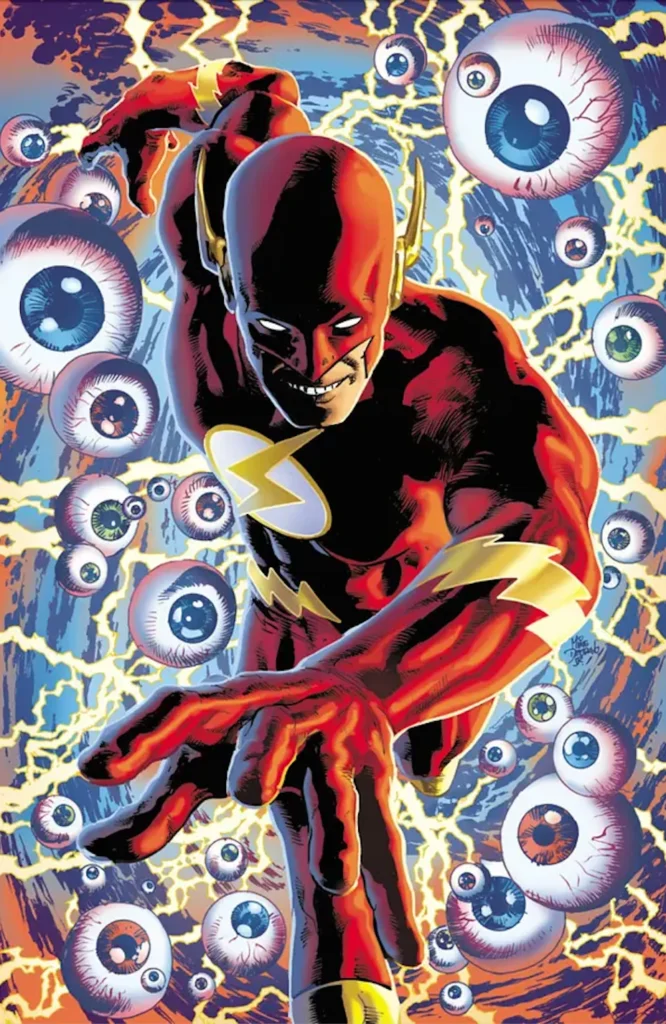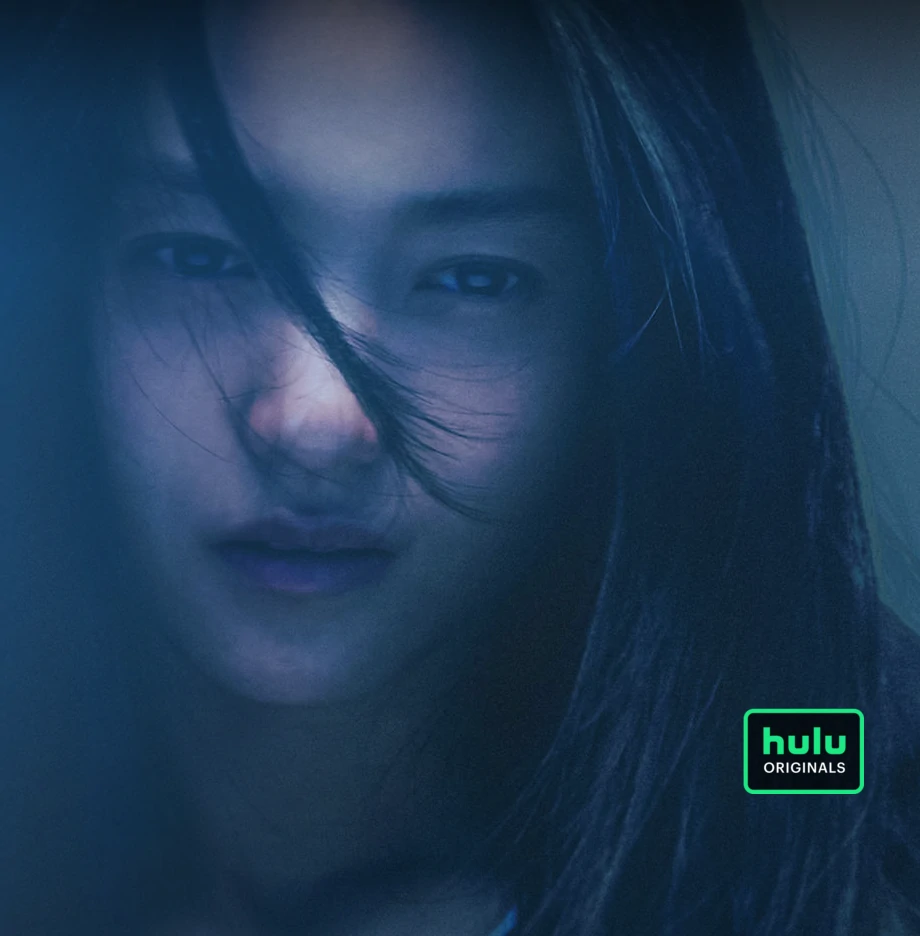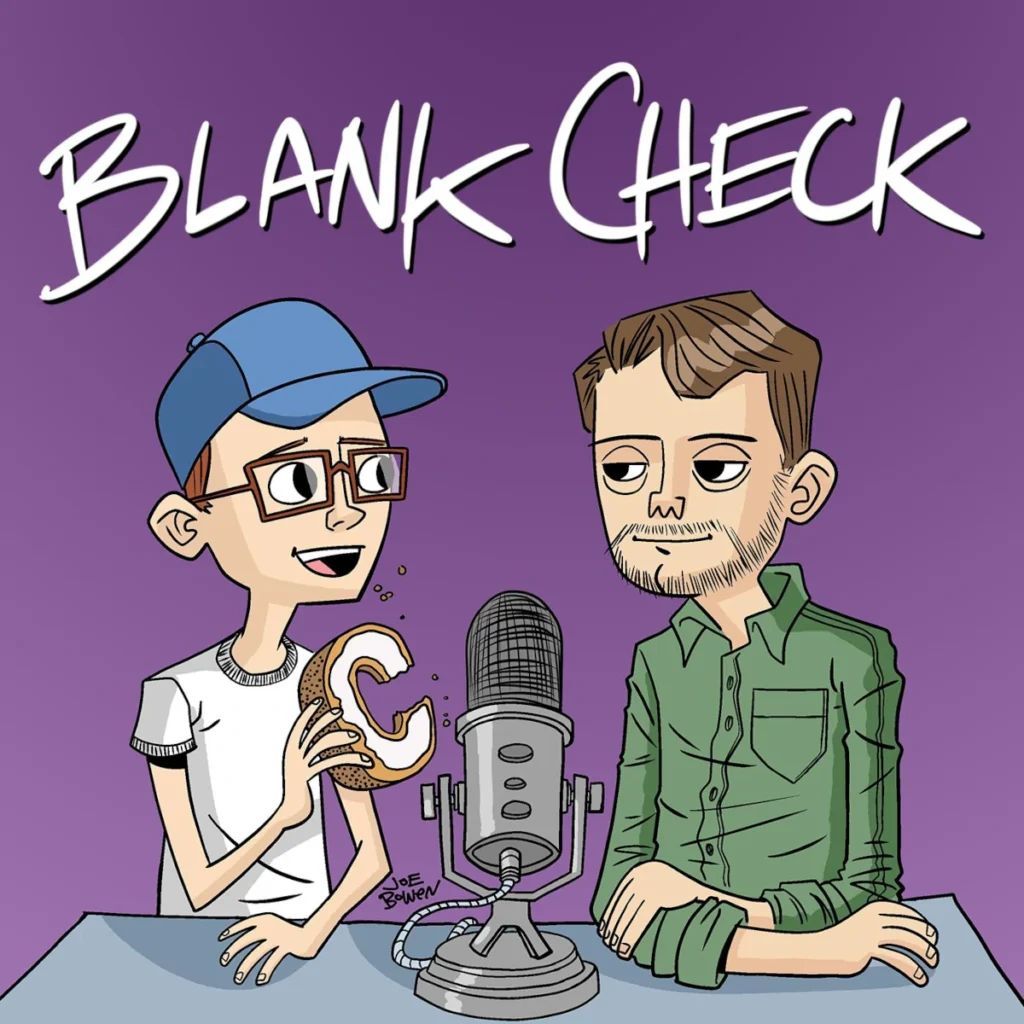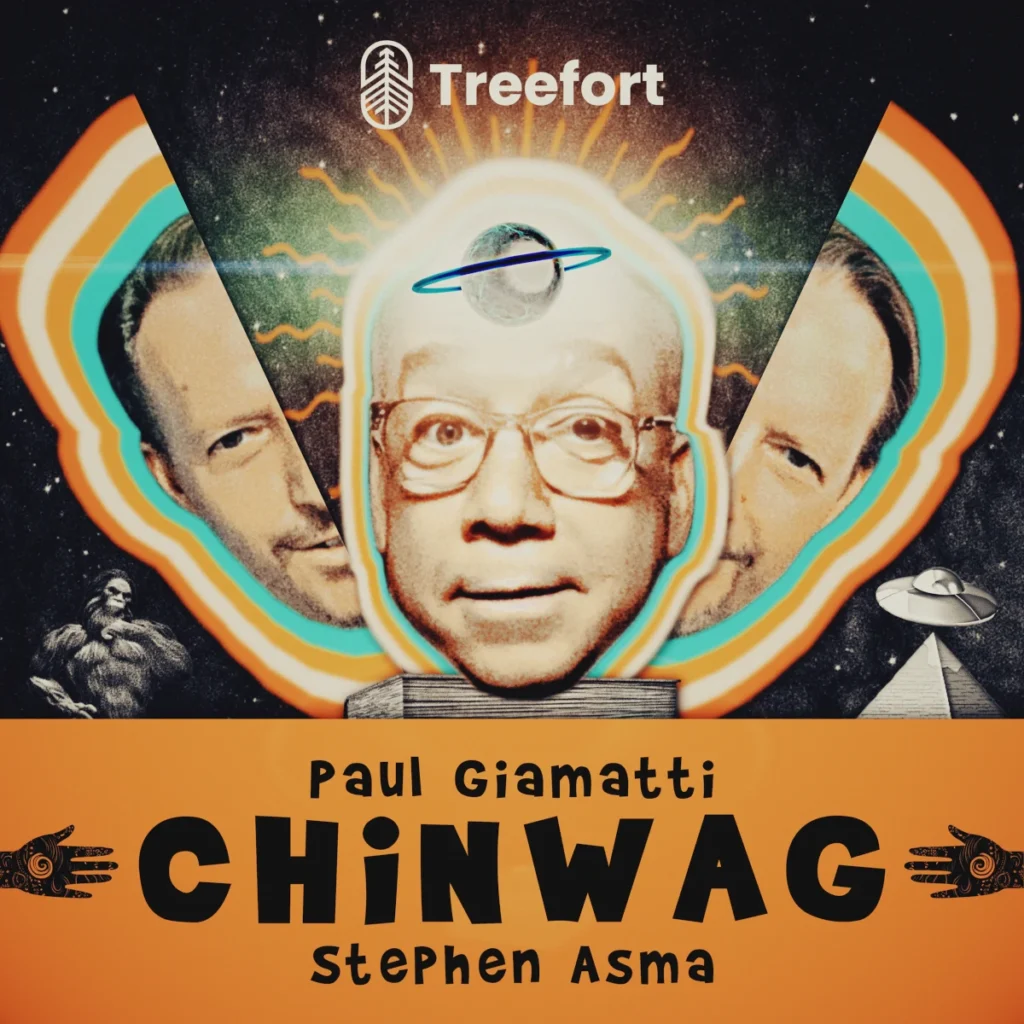
July/August Staff Picks
Words By F(r)iction Staff
Amber Sullivan
In August 2021, Esther recommended Link Click. Listen to them; watch it. I need people to join me as I slip back into a fan-crazed madness because season two is here!
But I’m not recommending the show. I’m here for the soundtrack that’s releasing alongside season two. I don’t care if you don’t watch the show (that’s a LIE) but don’t skip the full versions of the music.
白鲨JAWS and 饭卡 return for the ED in “The TIDES.” It’s eerie, it’s melodic; the discordic blend of guitar and lofi beats hits so right, and it escalates to a very different place than where it began. Why start with the ending song? Because we’re time travelling!
And because the ending of “The TIDES” blends pretty seamlessly into the beggining of the OP, “VORTEX,” where 白鲨JAWS not only created a desperate and impassioned melody but one that’s just as emotive when it plays in reverse, which it does–because we’re time travelling.
“Flash” by Gorilla Attack continues the trend of mathmatic tracks with strong narrative structures playing with time. I can’t get enough of the way the hectic beat messes with the time signature throughout the song.
Even though we’re time travelling, I don’t know what’s next for this soundtrack. It could be good, it could be amazing, it could only be these three songs, but I’ll still be listening for the rest of the summer.

Dominic Loise
I am excited for Si Spurrier’s upcoming take on The Flash (DC Comics) in September, but before the writing torch is passed, I would like to celebrate Jeremy Adams’ run on the book. Adams reestablished Wally West, former sidekick Kid Flash, as the title character of the book and reminded readers that the classic Mark Waid Flash in the nineties helped draw comics out of the grim and gritty era of the eighties.
There is a difference between a superhero grinning with superiority and smiling with the joy of living their dream and Wally West was the first sidekick to take the mantle of the hero after Barry Allen sacrificed himself to save the universe in Crisis of Infinite Earths (1985). Wally West was The Flash in comics from The Flash #1 (1987) until Barry Allen returned in The Flash: Rebirth (2009-2010). It felt like DC was treating Wally as a duplicate to the original when Barry returned, instead of red ribbon racing around the DC Universe in a blur that tied everything and everyone together.
Adams got Wally West ties to the DC Universe from his Teen Titans family, to the pantheon of the Justice League and how the Speed Force connected a multiverse of multiple characters to Earth Prime. The Adams’ Flash comic also understood that the character of Wally West was his most powerful when he stopped running and talked to other people.
The Flash wasn’t a comic about urban crime fighting but community engagement even to the point of Wally knowing the Rogues and talking with them.The communities of the twin cities of Keystone and Central City, the people Wally knew and his family have always been at the heart of the books. Wally knew his strength was honest dialogue about his limitations, asking others for help when he needed it and learning to be yourself- not just the hero.
Jeremy Adams wrote all this in his Flash comic which had open conversations about mental health awareness, thrilling action stories and hit the core notes of each character Wally West ran into.

Asmaani Kumar
Revenant (2023)
TW: Suicide, Child Abuse, Death.
I’ve been the biggest fangirl of Kim Taeri and Oh Jungse, and have been amazed by Hong Kyung in Weak Hero Class 1 early this year. So when I heard that all of these brilliant actors are going to lead a drama which cuts across horror, folklore and the vices of mankind, I was gripping the edges of my seat. I could not wait!
With only 4 more episodes to go, this series has been a rollercoaster ride. The attention to detail when building characters, the incredible pacing of the story, it’s stunning cinematography and the twists and turns taken so far has been grounded solidly by this one myth of the Juvenile Ghost. It has been fascinating to watch our leading characters slowly discover the origins of this ghost across decades as they work together to not only free Kim Taeri of her possession, stop her vengeful deaths but to also understand her traumatic past. It isn’t our usual story of exorcising a possession, because there are so many layers to it that slowly get unfolded at times in dangerous ways. There is also a very intelligent insertion of class dynamics done along with a sensitive exploration of disturbing emotions.
Deeply painful at times to watch, but also a very real portrayal of the deep and dark desires people tend to carry, this is a riveting story that leaves you shaken to the core and impresses on your mind for days. You cannot stop thinking about Revenant once you start!

Simon Kerr
Outer Wilds from Annapurna Interactive
Micro-planets you can circle in a matter of minutes, each with its own aesthetic, tricks, and gravitational pull. Quiet yet expansive storytelling, told through ancient spirals of alien writing.A story in fragments for you to discover. This is what the video game Outer Wilds can promise—breathtaking views and a singular experience.
Outer Wilds is best explored contextless, so if you need no more convincing to check it out, spare yourself the following details and go launch.
#
You live on a planet spotted with geysers, in a solar system so small the surface of other planets is visible to the naked eye. You’re also adorable, and an astronaut. Everywhere are signs of the Nomai, an enigmatic race of visitors that crash-landed in your home system long ago in search of a great mystery. Surrounded by these relics, your people have developed a space program long before the materials to do so. You’re about to launch into space in a wooden rocket.
On your first day, stay in orbit and visit your planet’s moon, with its drifting spiral of campfire smoke. Or investigate the strange image you awaken to by risking the dense cloud cover of your neighboring planet. Or approach the sun to see two planets intertwined in each other’s orbit, trading a column of sand back and forth. Or watch a brittle geode planet collapse in on itself. Or stay well away from that creepy gnarled tree planet, for now.
Then comes your second first day. And your third first day. And your fourth first day. And the supernova that ends them all.
#
The complete joy of solving the mysteries of Outer Wilds is second to none. Annapurna Interactive is home to other stunning and atmospheric games, stories that grip you the same way the teleportative novels of your childhood did: Stray (yes, the cat one!), What Remains of Edith Finch, Journey, and the upcoming Cocoon.
If your interests include space, archaeology, and the bittersweet awe of feeling like one small speck in the universe, Outer Wilds is yours. (Specifically, on Nintendo Switch, Playstation, Xbox, or PC.)

Nate Ragolia
Blank Check with Griffin & David
As an avid and ceaseless consumer of podcasts, and a lover of movies, my feed overflows with mic’d cinephiles sharing their takes (of various temperatures) about movies new and old. Somehow, only recently, I took a dip in the warm waters of #theTwoFriends, with Blank Check. The podcast is hosted by actor Griffin Newman (Draft Day, The Tick) and film critic and writer David Sims (The Atlantic). The theme of the show revolves around directors and their oeuvres, and the title refers to how auteurs early successes afford them the rare ‘blank check’ from Hollywood to produce passion projects.
To kick things off, the podcast is all about George Lucas’ Star Wars prequel trilogy, and Griffin and David (and producer Ben Hosley) devote multiple episodes to each of those films. The early eps are replete with bits, including our hosts pretending to not know about the existence of the original Star Wars trilogy. Following that series, they pivot toward the aforementioned director-focused course, tackling films by M. Night Shyamalan, The Wachowskis, Cameron Crowe, James Cameron, Christopher Nolan, and more.
Griffin and David are clearly passionate filmgoers who provide thoughtfully hilarious breakdowns of each and every film, and deliver wildly interesting facts and figures along the way. I have been binging this show for two weeks straight and loving every minute of it, and if you love movies, goofy hosts, silly bits, and inside stories… this one might be for you.

Dominic Loise
Paul Giamatti’s Chinwag with Stephen Asma
As a child of the seventies, I was exposed to more of the unexplained than I could wrap my head around. Every year for a while, the same house on our block would be up for sale with each owner having the same ghost story. My older brother once pointed out John Wayne Gacey’s house as our family drove past the street during weekend errands. Saturday afternoons were spent watching Rich Koz (then just Son of Svengoolie) and monster movies on local UHF. And the drive-in where my parents took me to see ET was buzzed by the odd lights from the local naval training base.
With this upbringing, it is a rickety dam against a raging river to see things as a skeptic. It is still a daily struggle especially for someone who works on their mental health. One day that metaphorical dam came down and I went inpatient. Since then, it is best to avoid material on the topic of the paranormal, which can be triggering. But through talk therapy, I also have been doing exposures, which is about watching or listening to anxiety inducing media in a safe environment (like during the daytime on a day off) and processing the thoughts and feelings.
Paul Giamatti’s Chinwag with Stephen Asma is a podcast that has been currently helping me. The podcast is hosted by one of the top actors working today, Paul Giamatti and Stephen T. Asma, author of On Monsters: An Unnatural History of our Worst Fears and a Professor of Philosophy at Columbia College Chicago. The podcast deals with a wide range of topics and takes many divergences and looks at different perspectives on the topics like aliens. ghosts and cryptozoology. Guests are either researchers in those fields or writers & actors with an interest in the topic.
I like that people are bringing their own research and reading to The Chinwag. The speakers try to cite materials if listeners wish to check them out for themselves. But mainly, I like that, when possible, that people are telling their own stories and accounts of what happened. The Chinwag has an organic conversation style that unfolds as this podcast continues the talk about the topic. And this style of talking about what comes to mind totally works for me.
The hosts and guests will step off the original path of conversation as a new topic comes up but bring it back with a deeper perspective and appreciation for the main themes of each podcast. They know that if you are walking in the woods, you have to stop to see a deer that comes along instead plowing through on the man made forest pathway. The natural conversation is what makes The Chinwag a deep experience, which I find different and comforting each time I listen.
Check out Paul Giamatti’s Chinwag with Stephen Asma on Apple Podcasts or where you listen to podcasts.
